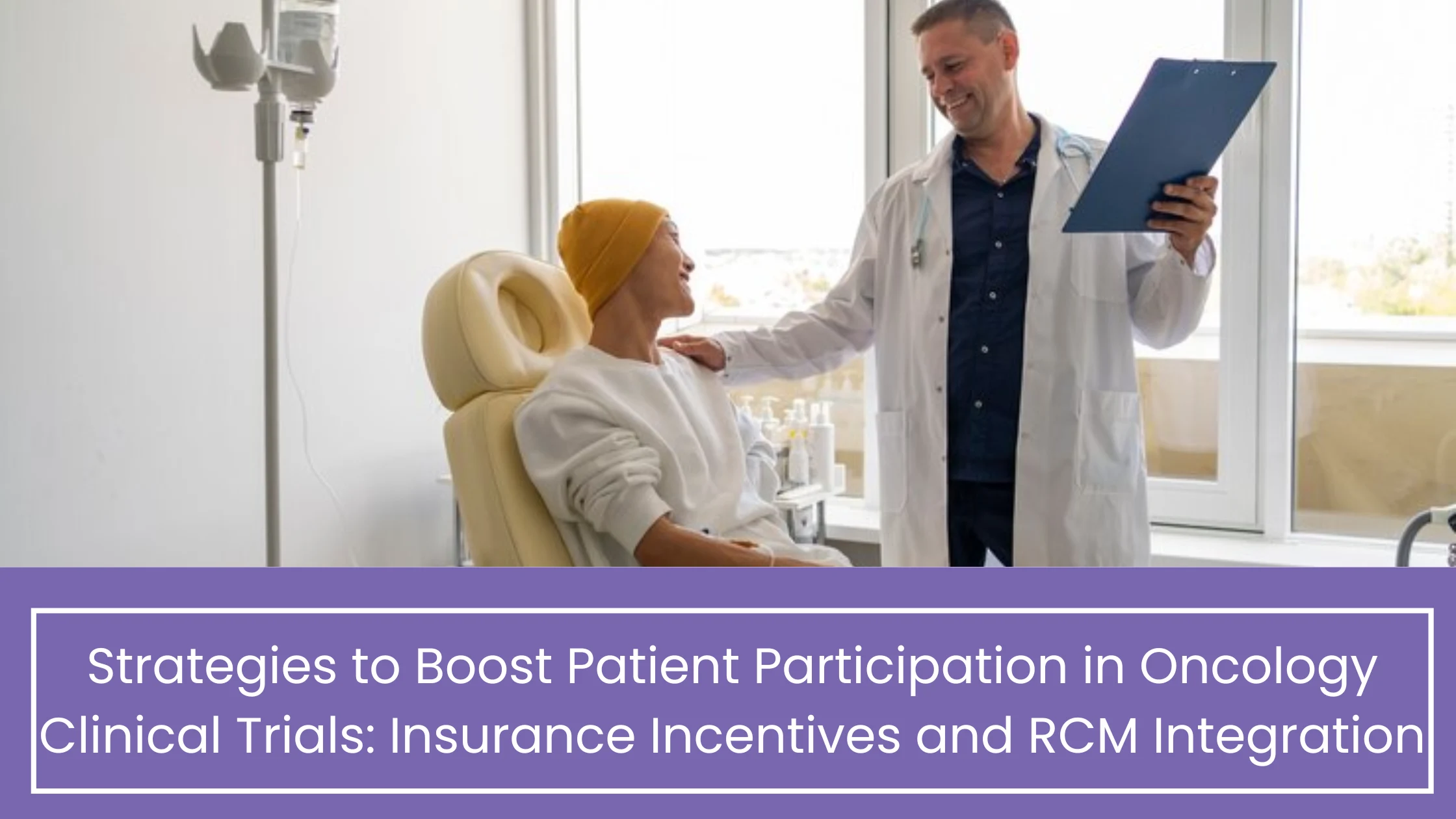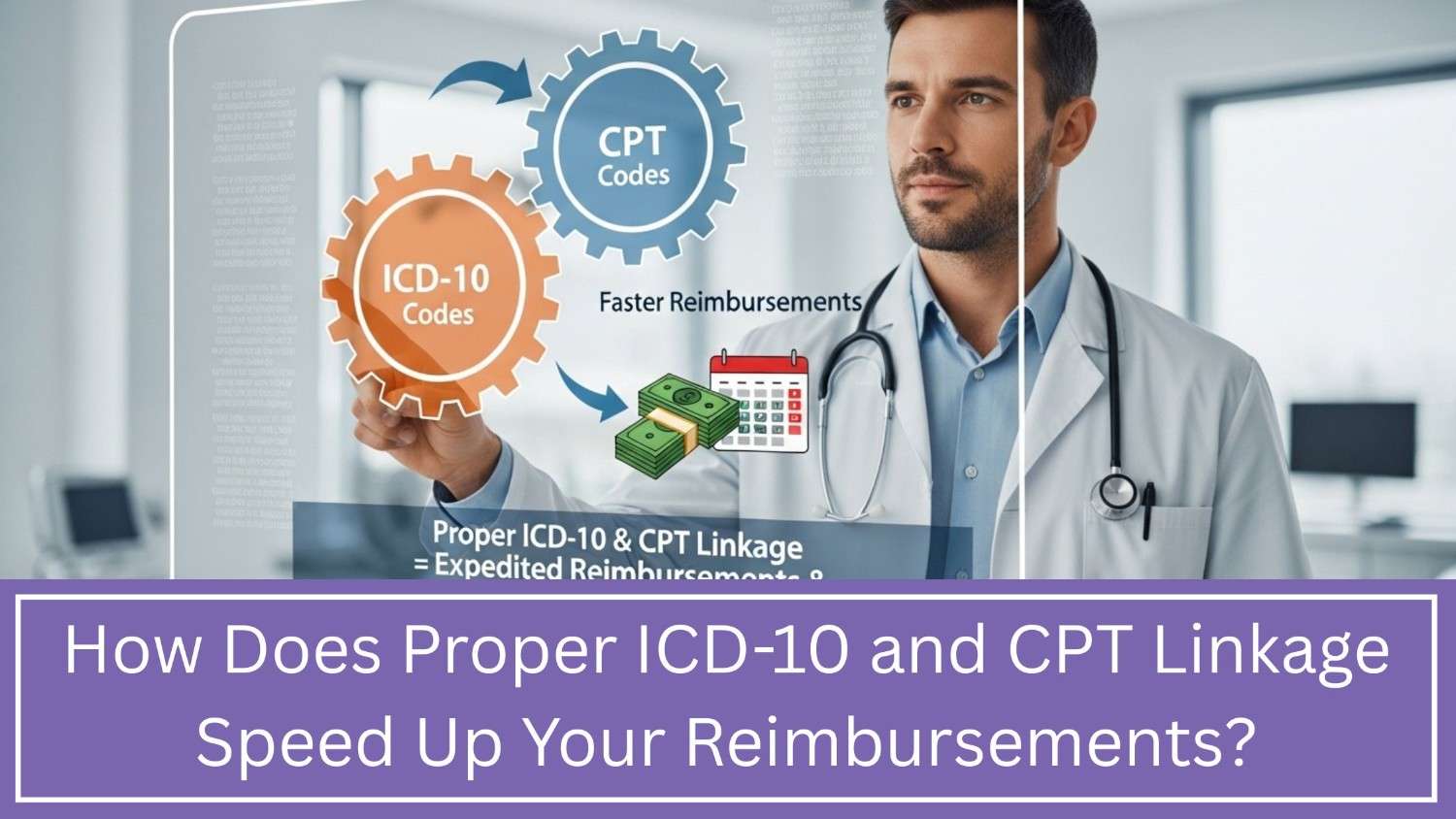Strategies to Boost Patient Participation in Oncology Clinical Trials: Insurance Incentives and RCM Integration
Clinical trials have significantly advanced the medical field, particularly in oncology, by providing a controlled environment for testing new cancer treatments. These trials are vital for discovering more effective therapies and improving patient outcomes. Patients participating in clinical trials gain access to cutting-edge treatments that are not widely available, offering hope for better diagnoses and quality of life. Additionally, these trials contribute to the broader scientific understanding of cancer, helping to refine existing therapies and develop new ones.
For instance, consider a patient with a rare form of cancer who has limited treatment options. Participating in a clinical trial offering a ground breaking therapy can be a life-changing opportunity, demonstrating the transformative potential of these trials in oncology.
Table of Contents
The Role of Insurance Coverage Incentives
Insurance coverage programs are designed to encourage patient participation in clinical trials by alleviating financial burdens. These incentives may include covering costs not typically reimbursed by standard health insurance policies, such as accommodations, travel expenses, and additional medical care required during the trial. By providing comprehensive coverage, these incentives make clinical trials more accessible to a broader population, improving the diversity and representativeness of study groups—an essential factor for the generalizability of trial results.
Revenue Cycle Management (RCM) in Clinical Trials
Revenue Cycle Management (RCM) services play a critical role in the financial management of clinical trials. RCM involves handling complex billing processes, reimbursements, and coding, ensuring that all financial transactions associated with trials are accurately recorded and processed. Efficient RCM is vital for healthcare providers, as it helps manage the financial aspects of clinical trials, from securing funding to processing patient claims and handling sponsor payments. This seamless management is crucial for maintaining the viability of clinical trials and ensuring the participation of all stakeholders, including patients, by providing the necessary financial support.
Barriers to Clinical Trial Participation
Financial Barriers:
One of the primary challenges to clinical trial participation is the financial burden on patients. Trials often require travel to specialized research facilities, leading to substantial travel and accommodation expenses. Additionally, patients may lose wages due to time away from work, especially if the trial involves extended stays and frequent visits. These costs can be prohibitive, particularly for patients without robust financial support, preventing them from accessing potentially life-saving therapies.
Insurance Barriers:
Another significant challenge is the limited coverage options for clinical-trial-related expenses. Many insurance plans do not fully cover costs associated with clinical trials, such as experimental treatments, supportive care, and additional monitoring. This lack of comprehensive coverage can result in substantial out-of-pocket expenses for patients, making trial participation financially unfeasible for many.
Gaps in Education and Awareness:
A considerable hurdle to clinical trial participation is the lack of education and awareness among healthcare providers and patients. Many patients are unaware of the availability of clinical trials or the potential benefits of participating. Similarly, healthcare providers may not be up-to-date on the latest trials or may lack the resources to adequately inform and refer patients. This knowledge gap can prevent patients from accessing novel treatments that could significantly improve their outcomes. Additionally, misconceptions about clinical trials, such as concerns about safety or the perception of trials as a “last resort,” can further hinder participation.
The Impact of Insurance Coverage Incentives on Oncology Clinical Trials
Insurance coverage incentives serve as a financial mechanism to make clinical trials more accessible to patients by covering expenses not typically included in standard insurance plans. These incentives may cover routine services related to clinical trials, additional costs, and investigational therapies, including lodging and travel expenses. By reducing financial burdens, these incentives encourage patient participation in trials, thereby improving the robustness and diversity of clinical research.
The primary benefit of insurance coverage incentives is the reduction of financial barriers, which can be a significant deterrent for patients considering trial participation. By covering a broader range of expenses, these incentives make it easier for patients to access potentially life-saving treatments and contribute to medical research. This, in turn, can accelerate the development and approval of new treatments, ultimately benefiting a larger patient population.
Key Strategies to Enhance Participation through Insurance Coverage Incentives
- Comprehensive Coverage for Routine Care and Investigational Treatments
Expanding insurance coverage to include both routine care and the investigational treatments being tested in clinical trials is essential for effectively managing patient health. This approach ensures that patients do not face out-of-pocket expenses for trial participation. Some insurance providers and healthcare systems have successfully implemented comprehensive coverage programs, leading to increased trial enrollment and more diverse patient populations. For example, certain cancer centers have partnered with insurance companies to offer full coverage for both supportive care and experimental therapies, resulting in higher participation rates and improved trial outcomes.
- Reimbursement for Out-of-Pocket Costs
Reimbursements can cover expenses such as meals, lodging, travel, and other incidental costs incurred during clinical trial participation. By covering these out-of-pocket expenses, patients are more likely to consider trial participation, even if it requires travel or time off work. This financial support can make clinical trials a viable option for a wider demographic, including those from lower socioeconomic backgrounds.
The Role of Revenue Cycle Management (RCM) Services
Healthcare RCM services encompass the financial and administrative processes that facilitate the payment of healthcare services. In the context of clinical trials, RCM services are essential for managing claims, billing, and reimbursements, ensuring the smooth navigation of financial aspects for both healthcare providers and patients.
Key RCM Services in Clinical Trials
- Claims Management and Billing:
- This process involves managing claims submission and medical billing processes to ensure accurate and timely payments.
- Benefits: Effective claims management reduces the administrative burden on healthcare providers and patients, ensuring smooth and accurate financial transactions.
- Patient Eligibility and Benefits Verification:
- This service helps verify patients’ insurance coverage and benefits for trial-related services.
- Benefits: It provides patients with a clear understanding of their coverage, minimizing financial surprises and enabling informed decisions.
- Authorization Management:
- This service secures necessary authorizations from insurance companies for trial participation.
- Benefits: It reduces the risk of unexpected claim denials, ensuring patients have access to necessary treatments without financial hurdles.
- Denial Management:
- This involves addressing and resolving insurance claim denials to secure coverage for trial-related expenses.
- Benefits: Successful denial management increases the likelihood of coverage for services rendered, minimizing financial losses for both patients and providers.
Integrating RCM with Insurance Incentives
Combining effective RCM services with insurance incentives can optimize financial workflows and enhance patient access to clinical trials. By streamlining claims management, billing, benefits verification, and authorization processes, RCM services allow providers and patients to focus on the clinical aspects of trials rather than financial concerns. This collaborative approach not only improves the patient experience but also strengthens the sustainability of clinical trials, fostering medical innovation and research.
Final Words
Improving patient participation in clinical trials requires robust insurance coverage incentives and effective RCM services. Comprehensive coverage for clinical trial costs, coupled with seamless RCM processes, is key to reducing financial barriers and increasing patient enrollment. Stakeholders must prioritize enhanced coverage and the integration of RCM to support this effort. Practolytics delivers exceptional RCM management, ensuring efficient reimbursement processes and billing crucial for oncology practices that advocate for clinical trials. By implementing these strategies, we can significantly improve access to advanced cancer treatments and elevate patient care in the future.
ALSO READ – Understanding Oncology Billing: A Comprehensive Introduction
Talk to Medical Billing Expert Today — Get a Free Demo Now!






